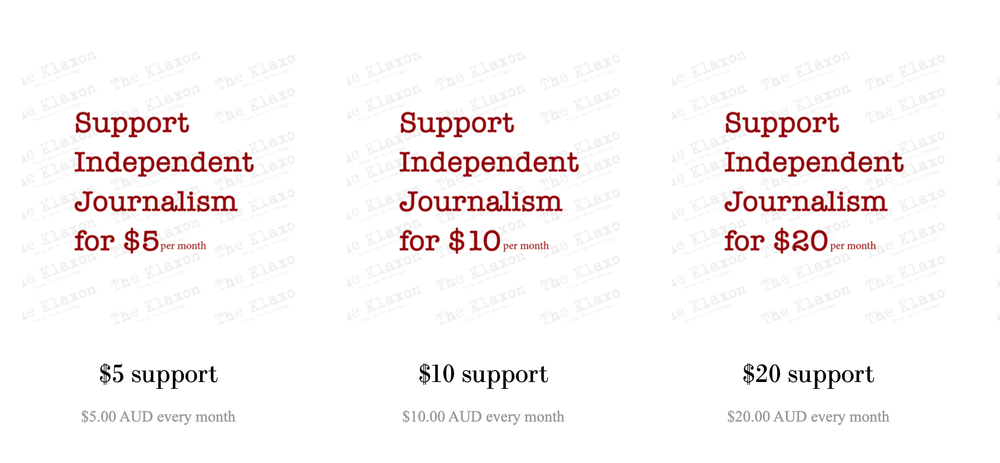
Appreciate our quality journalism? Please subscribe, from as little as $5 a month
DONATE SUBSCRIBEEXCLUSIVE
Australia’s media regulator has secretly changed its methodology giving the appearance that complaints from the public have crashed to all-time lows - when in fact they’ve surged by over a third.
It can be revealed the Australian Communications and Media Authority (ACMA) has changed how it defines “complaints”, so that only fraction of the complaints it receives are actually recorded as such.
Broadcast media regulator ACMA has used the new system in its 2020-21 annual report, but has failed to make any mention of the changed methodology in the 250-page document - or anywhere else.
Remarkably, two key ACMA executives - CEO and deputy chair Creina Chapman, and executive Chris Jose - have sought to distance themselves from ACMA’s annual report, suggesting they are not responsible for its contents.
Jose made headlines in recent weeks after it was revealed he was illegally paid for two Federal Government jobs at the same time - one being his full-time role at ACMA.

How The Klaxon broke the story. ACMA CEO Creina Chapman pictured. Source: The Klaxon
ACMA’s methodology change occurred after The Klaxon in August revealed that in 2019-20, ACMA investigated just 4 per cent of complaints it received from the public.
ACMA’s 2020-21 annual report was completed weeks later, on September 17 last year.
The Klaxon has revealed a series of irregularities regarding ACMA’s reporting, including that it had recently failed to publish its “quarterly” complaints reports for almost a year.
It was also revealed that in 2020 ACMA stopped publishing details of complaints and investigations in its annual reports altogether (it currently only reports the totals).
Now it can be revealed that ACMA has substantially reduced the numbers of recorded “complaints” by secretly changing its methodology.
ACMA has faced heavy criticism of falling to “regulatory capture” - where government agencies come to be controlled, or heavily influenced, by the sectors they are supposed to be policing.
ACMA is responsible for television and radio broadcasting, while the Australian Press Council is responsible for overseeing articles appearing in print.
Last year ACMA came under scrutiny when it emerged it had fallen to YouTube to take action against broadcaster Sky News for spreading misinformation about Covid-19.
YouTube, owned by Google, issued Sky with a 14 day ban last July over the conduct, which had included Sky posting videos denying the existence of the disease.
The scandal made international headlines and raised questions as to why it had fallen to a foreign internet company - rather than the Australian Government’s media regulator - to take action.
In its 2020-21 annual report, ACMA states that it received 242 “complaints” from the public in the financial year.
That’s less than a quarter of the complaints it reported in prior years: in 2019-20 it reported 1,326 “complaints” and in 2018-19 it reported 1,072.

But rather than falling, complaints and formal concerns lodged by members of the public have actually surged.
Although it has not disclosed the methodology change, ACMA is now recording the vast majority of “complaints” it receives from the public as simply “enquiries”.

Looking at both complaints and enquiries - which ACMA refers to collectively as “contacts” - provides a much clearer picture.
In 2018-19 there were 1,430 public contacts. In 2019-20 there were 1,686. Last financial year there were 2,098 - a leap of over 35 per cent compared to the previous two years.

Users of ACMA’s annual reports could very easily be misled as to the levels of complaints ACMA is actually receiving. Exacerbating this is ACMA’s failure to make any mention of its methodology change.
Below is the relevant “complaints” information from each of ACMA’s last three annual reports.
2018-19

2019-20

2020-2021

In a written statement, ACMA spokesman Kevin McAlinden said ACMA had “revised the 2020-21 reporting of code complaints data” to “more accurately reflect the number of complaints managed and assessed”.
“The change in reporting was considered to more accurately reflect the performance of the Agency,” the statement says.
ACMA confirmed it had made no disclosures about the methodology change.
“An explanation of this change in reporting will be included in our future quarterly reports on content complaints and actions made public on our website and in future annual reports,” McAlinden wrote.
“The next quarterly report will be released shortly.”
The chair of ACMA, its top boss or “accountable authority”, is Nerida O’Loughlin, who was appointed to the position by the Federal Coalition in 2017. (Continues below)
The Klaxon asked for responses from each of O’Loughlin, ACMA CEO Chapman, and “full-time member” Jose, as to whether they were involved in the decision to change the “complaints” reporting methodology.
Chapman and Jose, despite being in charge of ACMA, distanced themselves from the decision - and from ACMA’s annual report altogether.
““Mr Jose and Ms Chapman do not have responsibility for the preparation of, or final content contained in, the annual report””

How The Klaxon broke the story in January.
“The Authority, including Mr Jose and Ms Chapman, do not have responsibility for the preparation of, or final content contained in, the annual report, including the revised broadcasting code complaint data,” the ACMA statement said.
Chapman and Jose were also both appointed to ACMA by the Federal Coalition.
Jose was appointed on May 1, 2018.
Jose was also a part-time commissioner of the National Competition Council, having been appointed to that role in December 2017 by then Treasurer Scott Morrison.
It is illegal for a full-time Federal Government employee to have a second paid Federal Government job.
Jose received $41,058 in illegal payments between 2018 and 2020 for his role at the NCC.
As revealed by The Klaxon in January, the Commonwealth Ombudsman conducted a year-long investigation into the affair.
It revealed that rather than having Jose repay the money, officials across at least five federal departments and agencies went to extensive lengths to ensure Jose could keep it.
The $41,073 debt to the Commonwealth was ultimately “fully-waived” by the Department of Finance, in a highly-unusual process the Ombudsman said lacked proper documentation.
In August last year, based on data from ACMA’s 2019-20 annual report, The Klaxon revealed that during 2019-20 it only “investigated” 4 per cent of the complaints it received from the public. (The following month ACMA released its 2020-21 annual report, with the new methodology for “complaints”).
The data is shown below.

ACMA Broadcasting complaints and investigations 2019-2020. Data: ACMA. Graphic: The Klaxon
ACMA says it cannot not investigate matters until a complainant has first approached the broadcaster in question.
The usual process is that a complainant contacts ACMA and ACMA tells the complainant to lodge a complaint with the broadcaster.
If the complainant is unhappy with the response, or has not received a response after 60 days, then the complainant can lodge a complaint with ACMA.
Then ACMA decides whether or not it will investigate the complaint. ACMA was given this power - of deciding to simply not investigate some complaints - under changes introduced by the Federal Coalition in 2014.
The 4 per cent figure is the number of complaints that survive the whole process and are actually investigated by ACMA.
The complexity and time consuming nature of the system means many complaints are abandoned by complainants.
Under its methodology changes, ACMA is now only recording as “complaints” those complaints that have gone to a broadcaster and come back to ACMA.
In the 2020-21 financial year ACMA directed “over 900” complainants to broadcasters, its annual report states.
Of those, 242 came back to ACMA.
Under the new methodology only, those 242 are recorded as “complaints”.
ACMA does not record how many complaints are lodged with broadcasters, how many complaints are ignored by broadcasters, or how many “unsatisfactory” responses complainants receive from broadcasters.
More to come…
DONATE SUBSCRIBEAppreciate our quality journalism? Please subscribe, from as little as $5 a month

All media inquires and/or content syndication requests most welcome.
The Klaxon. Ph: 0403873899 Email: anthonyklan@protonmail.com
Welcome

Editor, Anthony Klan
Australian journalism is under threat like never before. So too is the ability for us, the public, to make informed decisions. A disintegrating media is serving to further concentrate the already vast, unhealthy, power held by a few. That power is routinely abused, its attendant responsibilities wilfully ignored, and our democracy weakened.
Your support ensures truthful, unbiased and unflinching reporting is accessible to everyone. The media landscape is riddled with vested interests: the more they win the more we all lose. On every level.
Help us speak truth to power, break the big and important stories, and to build a truth firewall against which those in public discourse can be held. If you can afford it, please subscribe, for as little as $5 a month. Together we will make a difference.
Thank you for being here.
Anthony Klan
Editor, The Klaxon
Email: anthonyklan@protonmail.com





